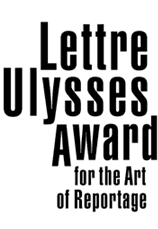
Natsuki Ikezawa, Japan

“Theirs were extremely pensive expressions. Were they being pumped with righteous indignation and desire to fight? Were they reliving these past twenty years of warfare and sanctions? Were the younger ones among them steeling their will to fight? Or trying to hold back anxieties about the death and disfigurement awaiting them?”
Novelist, poet, essayist, literary critic, translator. Natsuki Ikezawa was born in 1945 in Hokkaido, in the northern part of Japan.
After studying physics at Saitama University, Ikezawa moved to Greece in 1974, where he resided for three years. On returning to Japan, Ikezawa first became known as a lyric poet and translator, translating American authors Kurt Vonnegut and Jack Kerouac, among others. He also translated Modern Greek poetry into Japanese, and produced subtitles for the films of Greek director Theodoros Angelopoulos.
In 1984, Ikezawa published his first novel, a modern adaptation of Robinson Crusoe. Three years later, in 1987, he published the collection of longer short stories Still Lives, which was highly praised, and received the renowned Akutagawa Prize. He has since published many stories and essays, including Ending with Happiness, which received the Yomiuri Prize.
In 1995, Ikezawa published the novel The Fall of Macias Guili (not available in English) for which he was awarded the Tanizaki-Junichiro Prize. The work is a political novel about the uses and abuses of power, and the conflict between Western modernism and the primeval world of the South Pacific: a novel about spirituality, death, sexuality, and the archaic dimensions of life. His next novel, A Burden of Flowers, is set in Bali and is an exciting story involving drug schemes, court dramas, and political conflicts. As in many of his novels and essays, Ikezawa engages with the themes of cultural identity within the current political and societal context, and his relation to nature and the cosmos.
In the autumn of 2002, Ikezawa journeyed to Iraq where, together with renowned Japanese photographer Seiichi Motohashi, he documented the country in the face of the approaching war. This resulted in a piece of literary reportage entitled On a Small Bridge in Iraq, which can be found on the internet (www.cafeimpala.com) alongside his weekly commentaries Welcome to the New Century.
Ikezawa speaks Japanese, English, French and Greek. He is considered to be one Japan’s most important contemporary writers. His works have received laudatory reviews and have been translated into English, French, Russian, Turkish, and German.
Ikezawa currently lives on the Southern Japanese island of Okinawa.
